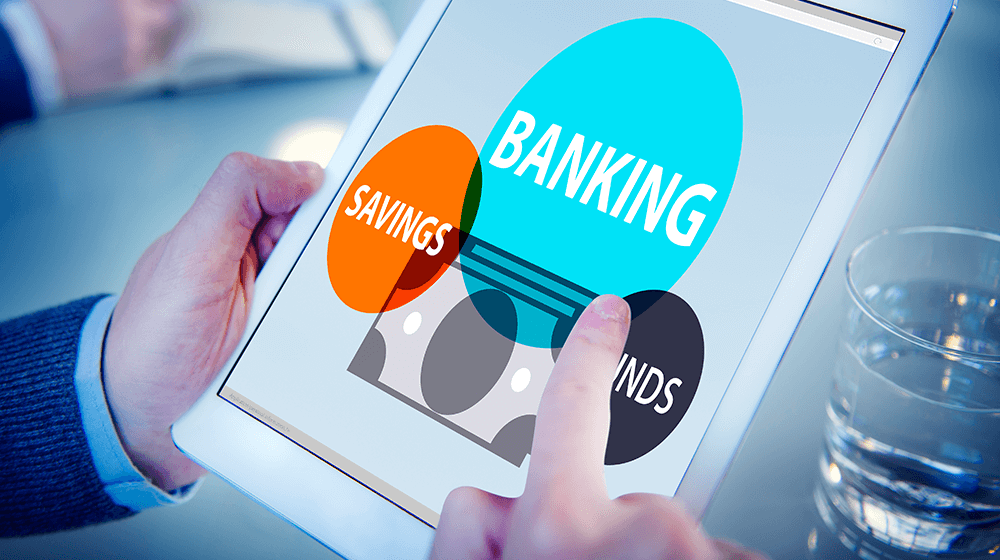Leading Tips for Opening a Checking Account: Make Sure Smooth and Efficient Configuration
Opening up a bank account may appear straightforward, yet a systematic approach can substantially boost the experience and set the stage for an effective financial partnership. By understanding the range of account kinds readily available, gathering crucial documentation, and comparing banking establishments, one can stay clear of common mistakes. Furthermore, taking into consideration the nuances between online and typical banking options is important. The most vital action commonly exists in adequately assessing the terms and conditions-- an element numerous forget. What adheres to can make all the distinction in your financial experience and economic health.
Understand Different Account Types
When opening up a bank account, it is vital to familiarize yourself with the numerous account types available. Recognizing these alternatives will enable you to select an account that ideal fits your financial requirements and goals.

Financial savings accounts, on the other hand, are designed for saving money and generally provide higher rates of interest than checking accounts. They may have withdrawal limitations, encouraging you to conserve gradually. For people trying to find a greater yield on their savings, CDs offer fixed rate of interest for a defined term, however they require you to lock in your funds up until maturity.
Additionally, there are specialized accounts like cash market accounts and pension, each with special functions and benefits. By comprehensively understanding these account kinds, you can make educated choices that line up with your financial strategy and way of living.
Gather Required Paperwork
Gathering the necessary documentation is an important step in the process of opening up a savings account. Correct documents not only helps with a smooth application procedure but also helps in confirming your identity, making certain compliance with governing demands.
Usually, you will require to offer a government-issued image identification, such as a key or chauffeur's certificate. This serves as evidence of identification and residency. Furthermore, a Social Safety And Security Number (SSN) or Individual Taxpayer Recognition Number (ITIN) is frequently needed for tax coverage objectives. Some bankss might also ask for evidence of address, which can be demonstrated with energy bills, lease contracts, or bank statements.

Additionally, if you are a minor, parental authorization and identification might be required. It's a good idea to talk to the certain bank regarding their paperwork needs beforehand, as these can differ. By ensuring all essential papers are ready, you can quicken the account opening process and stay clear of prospective hold-ups.
Research Study Banks and Costs
A detailed contrast of various bankss and their fee frameworks is important for picking the best banks for your needs. Various bankss supply a series of services, and recognizing their fees can significantly influence your overall banking experience. Begin by recognizing your banking needs, such as whether you need an inspecting account, cost savings account, or both.
Following, analyze the charge frameworks related to each account type. Usual costs include regular monthly upkeep costs, overdraft charges, atm machine use fees, and international purchase fees. Some bankss may forgo these costs if you maintain a minimum balance or established straight down payments.
Additionally, examine any type of fees related to account solutions, such as cable transfers, published statements, or check orders. It is likewise smart to assess the rates of interest used on savings accounts, as these can vary substantially amongst establishments.
Take into consideration Online vs. In-Person
Choosing between online and in-person banking can considerably influence your general banking experience and benefit (bank account opening). Each choice offers unique advantages that deal with various choices and way of livings
Electronic banking supplies a high degree of flexibility and accessibility. With the capacity to handle your account from anywhere making use of a smart device or computer system, on the internet banking enables fast deals, balance checks, and costs settlements at any visit site moment. Furthermore, numerous online bankss supply competitive rates of interest and lower costs because of decreased expenses expenses.
Conversely, in-person financial supplies a personal touch that their explanation some consumers may locate comforting. Going to a physical branch permits direct communication with bank representatives, which can be specifically useful for complex questions or monetary advice. In-person financial also allows customers to transfer cash money, get instantaneous support, and build connections with staff, fostering a feeling of count on.
Inevitably, the choice in between online and in-person financial ought to be based upon your individual requirements, convenience level with innovation, and the details services you need. Consider your financial habits and choices very carefully to establish which option lines up ideal with your financial goals.
Review Terms and Conditions

When assessing the conditions, pay attention to vital aspects such as fees, passion rates, and account attributes. Search for monthly upkeep fees, purchase limitations, and penalties for overdraft accounts or early withdrawals (bank account opening). Recognizing these fees can aid you stay clear of unforeseen fees and handle your funds a lot more effectively
In addition, take into consideration the rate of interest used on savings or inspecting accounts. Greater rate of interest can considerably influence your savings in time. It's additionally vital to understand the terms associated with bonus offers, rewards programs, and promotional deals, as these can boost your financial experience.
Lastly, ensure you understand the bank's policies on customer care, disagreement resolution, and personal privacy. Familiarizing yourself with these problems will certainly equip you to make informed find decisions and establish an efficient connection with your bank. Taking the time to thoroughly evaluate the terms can protect against future misconceptions and foster long-term fulfillment with your banking experience.
Final Thought
To conclude, an educated approach to opening up a checking account facilitates a smooth and efficient setup process. Understanding the various account types, gathering necessary documentation, and researching bankss and associated costs are crucial steps. Additionally, considering the advantages of on-line versus in-person financial choices can improve benefit. Cautious review of terms and problems makes sure quality concerning fees, features, and account owner obligations, ultimately leading to an extra adequate banking experience.
Opening up a bank account might seem uncomplicated, yet a methodical strategy can substantially enhance the experience and established the phase for an effective financial connection.The most usual types of accounts consist of checking accounts, financial savings accounts, and certificates of down payment (CDs)Savings accounts, on the various other hand, are developed for conserving money and normally offer greater interest rates than examining accounts. Begin by identifying your banking needs, such as whether you need an inspecting account, financial savings account, or both.
Comprehending the numerous account types, gathering needed documentation, and investigating bankss and linked fees are important actions.